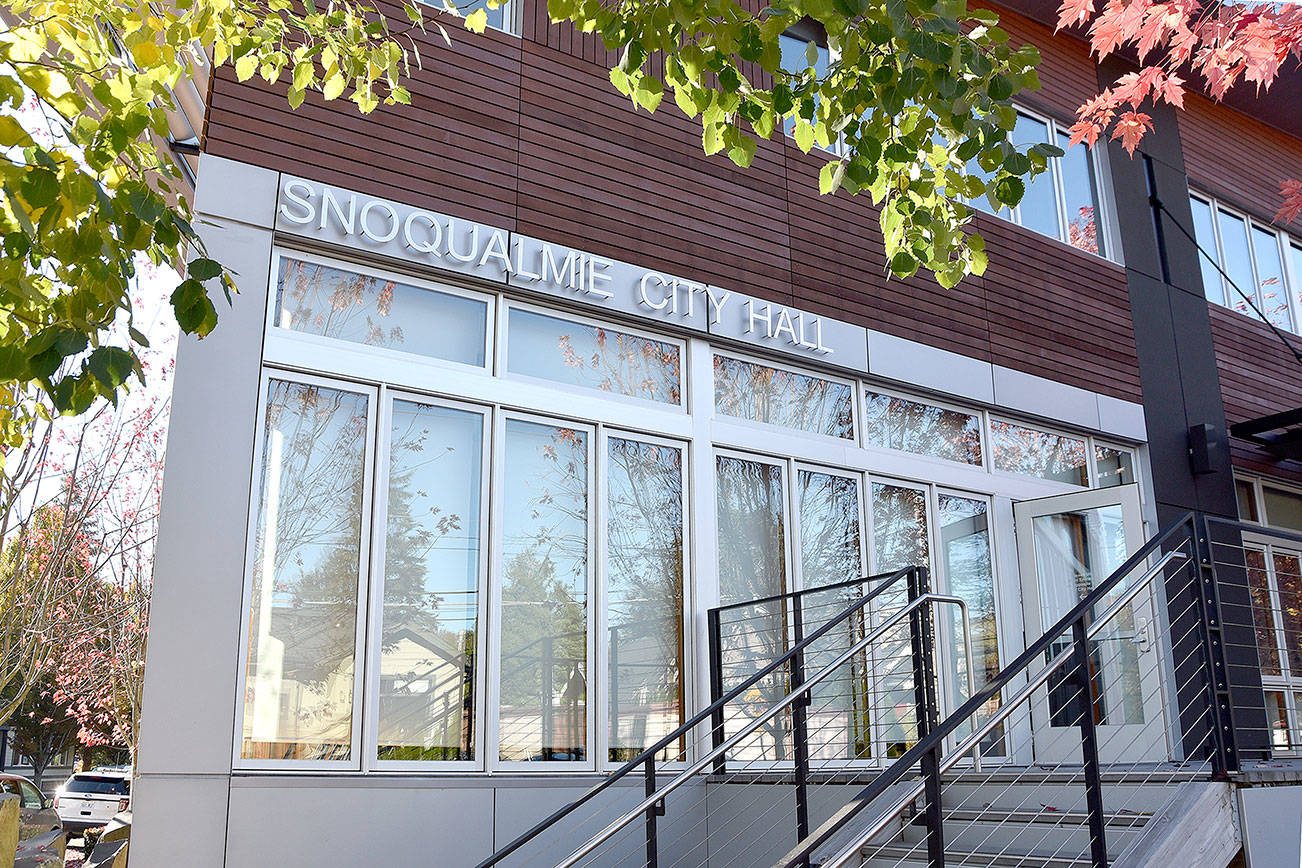The Snoqualmie City Council tackled a series of topics at its July 23 meeting including an update of the six-year transportation plan, extending the date for the closing of the sale for the King Street lot and an amendment to the Riverwalk Phase 1 design.
In a 5-2 vote, with council members James Mayhew and Peggy Shepard opposing, the six-year transportation improvement program (STIP) update for 2019-24 was approved by the council.
The STIP is a list of transportation improvement projects organized by priority for funding and updated each year. The state requires cities to update their lists every year in order to be evaluated to see if any of their projects are qualified to receive federal funding. Projects within the next three years are collected into regional STIPs, which are then collected into a state transportation improvement plan. That plan then goes to the Federal Highway Administration and Federal Transit Authority for approval.
Projects including replacements for Kimball Creek bridges along Meadowbrook Way, design work for Snoqualmie Parkway to I-90 and SR-18 westbound onramp and Snoqualmie Parkway pavement rehabilitation were featured on the list.
Council members were generally supportive of the list to be submitted for the chance at federal funding for these projects. Shepard voted no, saying she would like to see the Snoqualmie STIP add a city map with the listed projects highlighted. Mayhew voted no due to the vote being called before he had a chance to ask any of his own questions.
Following the vote on the STIP, council discussed a second amendment to the Riverwalk Phase 1 contract with the Berger Partnership. The amendment extends the contract end date and adds $30,812 in cost for a scour analysis and cultural resource assistance around Kimball Creek, where a pedestrian bridge is considered to be sited.
Nicole Sanders, a senior planner at the city, explained that $10,000 was for a cultural resource analysis and the remaining $20,000 was for a scour analysis, which will look at the sediment in the river at the location of the proposed bridge.
“The bridge is estimated at 60,000 pounds or 30 tons. We want to make sure the creek bank on either side of Kimball Creek can support that footing. It would be terrible to have a beautifully constructed bridge that went down stream,” she said. “The scour analysis is taking a look at how water will be flowing in that area, making sure it would remain stable around the footing and then seeing if there is anything additional needed for the stability of those footings, which could then inform permitting.”
Sanders said that the additional price for these services were needed because in the initial 30 percent design phase, staff weren’t sure if they could make the bridge work. Once they got to the 60 percent design phase, they realized the bridge would be possible within the budget, but required these additional studies to be done. The council unanimously approved the amendment.
Council’s next discussion item was a request to extend the closing of the sale of the King Street lot for up to 60 days until Sept. 30. The owner of Sigillo Cellars, Mike Seal, requested the extension after council did not make a decision on a recent resolution to adjust city code regarding building height in the downtown historic district.
At their June 25 meeting, council discussed fixing two conflict pieces of city code regarding building height in the downtown district. One code limits the buildings to 30 feet, while another states the limit is 35 feet. This issue will return to the Community Development Committee on Aug. 6, but Seal has applied for the extension to see how the final decision by city would affect his proposed designs for a new building on the lot.
Because the conflicting code had both staff and the buyers of the lot confused, council members Mayhew, Matt Laase and Sean Sundwall voiced support in that this was a reasonable request due to how recently the issue had come up and the speed at which it is being addressed.
“Based on what we’ve heard from our own city employees about confusion between the 30-foot and 35-foot (limits), I find it believable and I believe that it’s a reasonable request by the buyer, to get a delay on this until they can have clarity as to what exactly it is that they can do with this property they are buying,” Mayhew said. “I think we should give this extension, I think it is the reasonable thing to do in this case.”
Council member Bryan Holloway voiced some concern about how many extensions had been granted in the process to sell the lot to Seal, but because the height conflict was an unforeseen complication that came up on behalf of the city, he voted to approve the extension.
The extension was approved in a 6-1 vote with council member Shepard voting against stating that she was not in favor of the project.
The full video archive of the meeting is available on the city’s official YouTube channel and the full agenda can be found on the city of Snoqualmie’s website.



